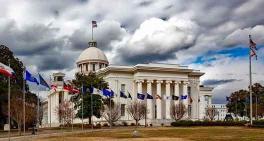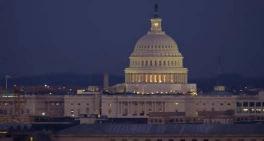Court: Government can't block immigrant teens from abortion
Featured Legal News
A federal court in Washington has told the Trump administration that the government can't interfere with the ability of pregnant immigrant teens being held in federal custody to obtain abortions.
A judge issued an order Friday evening barring the government from "interfering with or obstructing" pregnant minors' access to abortion counseling or abortions, among other things, while a lawsuit proceeds. The order covers pregnant minors being held in federal custody after entering the country illegally.
Lawyers for the Department of Health and Human Services, which is responsible for sheltering children who illegally enter the country unaccompanied by a parent, have said the department has a policy of "refusing to facilitate" abortions. And the director of the office that oversees the shelters has said he believes teens in his agency's care have no constitutional right to abortion.
The American Civil Liberties Union brought a lawsuit on behalf of the minors, which the judge overseeing the case also Friday allowed to go forward as a class action lawsuit.
"We have been able to secure justice for these young pregnant women in government custody who will no longer be subject to the government's policy of coercion and obstruction while the case continues," said ACLU attorney Brigitte Amiri after the judge's order became public.
The government can appeal the judge's order. A Department of Justice spokesman didn't immediately respond to an emailed request for comment Friday evening.
The health department said in a statement Saturday that it "strongly maintains that taxpayers are not responsible for facilitating the abortion of unaccompanied minors who entered the country illegally and are currently in the government's care." It said it is "working closely with the Justice Department to review the court's order and determine next steps."
The ACLU and Trump administration have been sparring for months over the government's policy. In a high-profile case last year, the ACLU represented a teen who entered the U.S. illegally in September and learned while in federal custody in Texas that she was pregnant.
The teen, referred to in court paperwork as Jane Doe, obtained a state court order permitting her to have an abortion and secured private funding to pay for it, but federal officials refused to transport her or temporarily release her so that others could take her to get the procedure.
The teen was ultimately able to get an abortion in October as a result of the lawsuit, but the Trump administration has accused the ACLU of misleading the government during the case, a charge the ACLU has denied.
Related listings
-
Kentucky high court: Death penalty IQ law unconstitutional
Featured Legal News 06/16/2018The Kentucky Supreme Court has ruled that the state's practice for determining if someone is intellectually disabled and not eligible to receive the death penalty is "unconstitutional."News outlets report that the court on Thursday deemed Kentucky's ...
-
Kansas court avoids ruling on execution for student's death
Featured Legal News 06/13/2018The Kansas Supreme Court has postponed a decision on whether the state can execute a man convicted of kidnapping, raping and strangling a 19-year-old college student.The high court on Friday upheld the capital murder conviction of Justin Eugene Thurb...
-
Court: Compliance reached in education funding case
Featured Legal News 06/11/2018A long-running court case over the adequacy of education funding in Washington state has ended, with the state Supreme Court on Thursday lifting its jurisdiction over the case and dropping daily sanctions after the Legislature funneled billions more ...

Processing Change for Certain Form I-730 Petitions
USCIS changed the processing location for certain Form I-730, Refugee/Asylee Relative Petition, filings. Previously the Service Center Operations Directorate processed these filings. Now, the International Adjudications Support Branch (IASB) in the Refugee, Asylum, and International Operations Directorate will process the petitions filed by individuals who were admitted to the United States as refugees. Petitioners and/or accredited representatives who file refugee-based Form I-730 petitions will receive further instructions when IASB receives their filings. Form I-730 petitions filed by persons granted asylum will not be affected by this change. The mailing instructions for Form I-730 remain the same. Petitioners should continue to follow the Where to File directions on the Form I-730 page. This policy update is consistent with the Department of Labor’s (DOL’s) Standard Occupational Classification system. DOL defines economists as people who conduct research, prepare reports, or formulate plans to address economic problems related to the production and distribution of goods and services or monetary and fiscal policy. Economists may collect and process economic and statistical data using sampling techniques and econometric methods.




